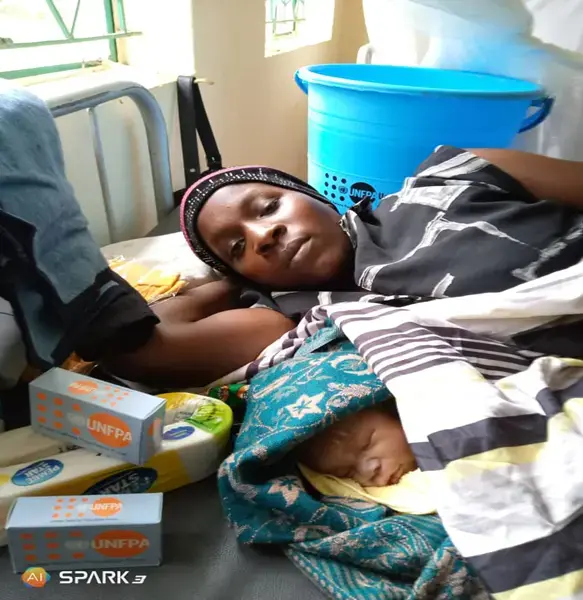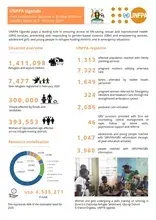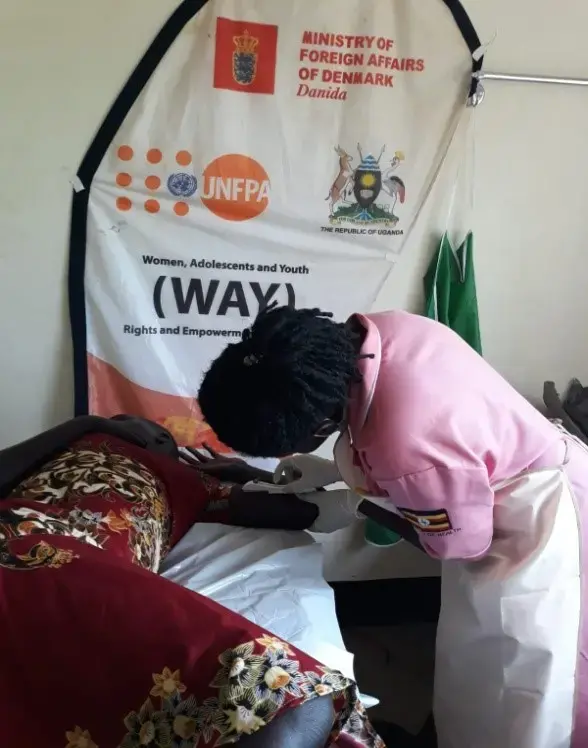Kyaka II settlement, KYEGEGWA: In every emergency, one of every five women of reproductive age is expected to be pregnant. Without access to reproductive health services like skilled attendance, emergency obstetric care and post natal and family planning services, these women risk life-threatening complications before, during and after birth.
Following a resumed fighting in the Democratic Republic Of Congo, thousands, many of them women, children and young people have fled their homes reportedly escaping violence and human rights violations and abuses committed by various armed groups in the Ituri and North Kivu regions of the country.
With a US$ 500 million support from the UN Central Emergency Response Fund (CERF) UNFPA in Uganda has taken to the ground to rapidly respond to this crisis to ensure safe births for every expectant mother through skilled attendance, access to family planning and providing protection and responding to Gender Based Violence.
In two weeks of operations in Kyaka II settlement, a total of 57 pregnant mothers have been mapped. Of these, 49 were identified on arrival at Sweswe Reception Centre, seven mapped in the community and two from the UNFPA-ACORD offices at the base camp. A total of 250 dignity kits were also dispatched to the settlement to encourage mothers to deliver safely at the Health Centres. One midwife has been deployed at Bujubuji Health Centte II to attend to mothers and two others are expected soon. UNFPA will also provide an ambulance for strengthened referral services.
“I have attended to three safe deliveries since I arrived here. There were no cases of of complications among these mothers,” says Midwife Sanyu Kellen, a UNFPA supported midwife who has served in emergencies since 2003.
“We also ensure to follow up these mothers in the communities to ensure that they and their babies are still in good health, remind them about the benefits of post natal and family planning services,” she says.
Through Implementing Partner ACORD, UNFPA is also rolling out GBV prevention and response services in four primary schools in the settlement through establishment of anti-GBV clubs to encourage debate on GBV and making healthy adolescent reproductive health choices through music, dance, sports and drama activities.
At community level, UNFPA will work with 12 community watch persons for GBV prevention in Byabakora and Mukondo zones. This will include identifying cases of early marriages, defilement and domestic violence.
“Since most GBV cases happen in the communities, this group will be our GBV case watch persons. They will help in identifying cases and reporting to us to follow up with psychosocial support to survivors. We shall also organize sensitization and trainings to build their skills,” says ACORD Team Leader Aggrey Mugabirwa. The community watch persons will also be trained and skilled on Sexual and Reproductive health issues including mapping of pregnant women.
Acording to reports, Between 28th February and 2nd March, 829 new refugee arrivals entered Uganda from the Democratic of the Congo (DRC), bringing the total number of new arrivals since 1st January 2018 to 46,124. Of the total number of new refugees arrivals since 1st January 2018, some 28,711 arrived from the Ituri region and another 17,413 from North Kivu. Through Implementing Partner, CARE, UNFPA is also present in Kyangwali settlement implementing activities on GBV prevention and response, Reproductive health and young people.
- Written by Evelyn Matsamura Kiapi




